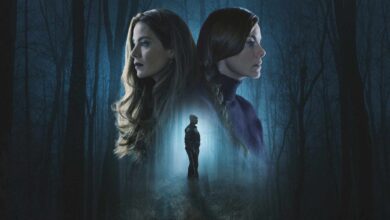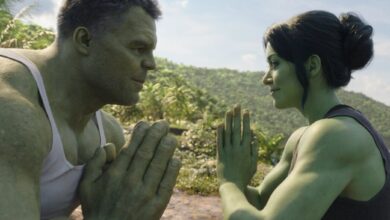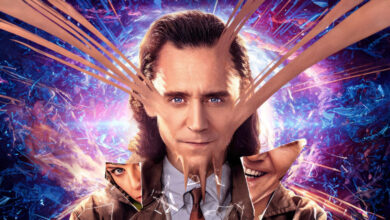Doctor Who: The Giggle Review: Finale That Takes Fans New And Old Through To The New Beginning
Cast: David Tennant, Catherine Tate, Neil Patrick Harris, Jemma Redgrave, Ruth Madeley, Bonnie Langford, Nicholas Briggs, Karl Collins, Jacqueline King, Yasmin Finney, Ncuti Gatwa
Director: Chanya Button
Streaming Platform: Disney+
Filmyhype.com Ratings: 4/5 (four stars)
Doctor Who: The Giggle is the third special that the BBC has made to celebrate 60 years of Doctor Who. David Tennant and Neil Patrick Harris are the main actors in this new adventure, available in the Disney+ catalog. “I don’t want to go”, said David Tennant in the role of the Tenth Doctor in January 2010, in the sequence where he handed over the helm of the series to Matt Smith (and then again, in 2013, in the fiftieth anniversary special The Day of the Doctor, so that his exit from the scene was philologically the same). A phrase that fans have had in mind since the first appearance of the Fourteenth Doctor, with the knowledge that, at the end of the three specials for the sixtieth anniversary of Doctor Who, the time would come to say goodbye to Tennant for the second time. An element that Russell T. Davies, already at the time the author of the first regeneration of the Scottish actor, took into account in an attempt to surprise the public once again and close the celebrations of the show’s sixtieth anniversary in style with the episode of which we talk about in our review of Doctor Who: The Giggle.
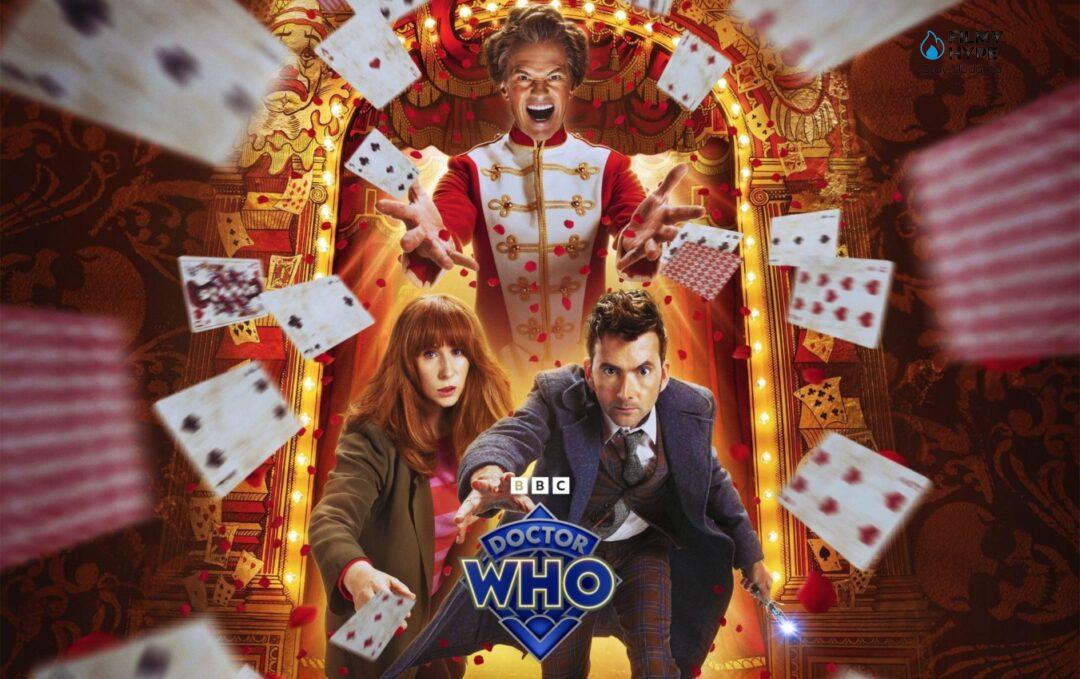
We have concluded this narrative arc of Doctor Who made up of three specials which saw the return of David Tennant and Catherine Tate in the roles of the Doctor and Donna Noble who will act as a “bridge” (it is no coincidence that the title this series of episodes is “The Bridge”) to the new series starring Ncuti Gatwa as the fifteenth incarnation of the Time Lord. Thanks to BBC and Disney+, we had the opportunity to preview this finale, in which we were able to enjoy the performance of Neil Patrick Harris in the role of the terrible Toy Maker, an old acquaintance of the Doctor.
Doctor Who: The Giggle Review: The Story Plot
After rescuing Wilfred, UNIT explains to the Doctor and Donna that for two days the entire human race has been affected by a mysterious signal that makes everyone think they are right, generating chaos around the world. Apart from the UNIT agents who are equipped with a device that suppresses the signal, the only ones immune are the Doctor – as he is non-human – and his companions in adventure, since repeatedly traveling in the TARDIS has made them “out of sync” with the rest of humanity. After having identified the origin of the problem, the Doctor returns to 1925 to investigate and discovers with great horror that behind all this lies an old enemy: the Toy Maker, a being from an alternative reality who does not obey the laws of logic, and where everything is based on games. And to defeat him, the Doctor will have to accept a new game, with the fate of the entire Earth at stake.
Doctor Who: The Giggle Review and Analysis
David Tennant and Catherine Tate are once again the emotional core of this final special, which celebrates the anniversary by bringing together different elements and actors: Jemma Redgrave returns in the role of Kate Stewart, daughter of one of the protagonist’s historical allies, flanked by Bonnie Langford in those of Melanie Bush, adventure companion of the Sixth and Seventh Doctor and already present, last year, in the episode The Power of the Doctor, in the scene which explained that the Time Lord’s ex-companions had created a group of support to share their experiences. Nicholas Briggs, the regular voice of antagonists such as the Daleks and the Cybermen, on this occasion, voices a benign entity, the Vlinx. And then there is Neil Patrick Harris, who plays amiably – including ballets – in the role of the Toy Maker, who returns for the first time since 1966, when he had the features (briefly shown in flashback) of Michael Gough, an English character actor known mainly for being was Alfred in the Batman films directed by Tim Burton and Joel Schumacher.
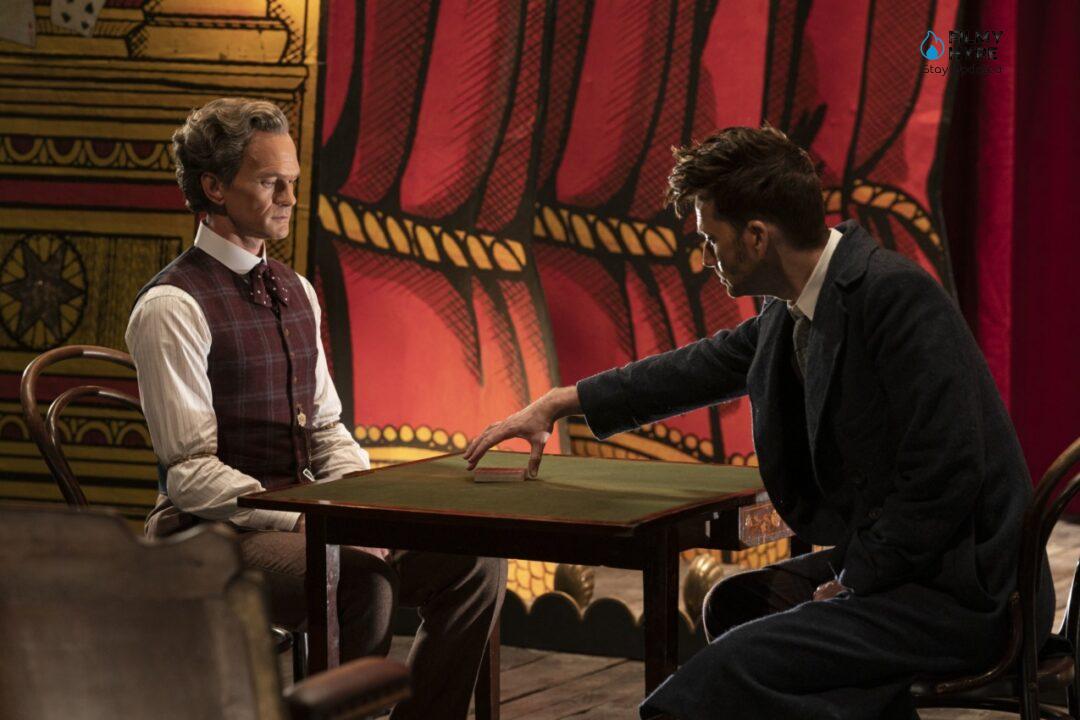
But the crucial element is the introduction of Ncuti Gatwa, the Scottish actor originally from Rwanda who had been announced as Jodie Whittaker’s successor before the plot twist linked to Tennant (a ploy also necessary to accommodate Gatwa’s previous commitments, who was also on the sets of Sex Education and Barbie during the filming of the specials). A somewhat unusual introduction, as already suggested by the promotional materials, with which Davies goes beyond the usual mythological implications of regeneration and gives the episode a more light-hearted and cheerful tone, whereas the Doctors’ farewells are usually very dramatic and full of pathos (with a minimum of humor, sometimes alienating, when the next incarnation appears). Gatwa’s entry, sensational already in the (relatively) few minutes available, is an entry that marks in all respects a new beginning for the series, to the point that its first complete season, broadcast in the spring of 2024, is considered the inaugural of a new cycle, which coincides with the acquisition of international rights by Disney+.
After The Star Beast and Wild Blue Yonder, what was effectively a celebratory trilogy concludes, with each episode focusing on various aspects that have contributed to the longevity of the series: the light family atmosphere, the sometimes more adult tones that can veer into horror and favor introspection, and the mixture of pure bizarreness – here facilitated by the inclusion of the Toy Maker – and internal mythology which often enjoys distorting what we thought we knew about the Doctor (as happened, for example, with the introduction of the War Doctor under Steven Moffat’s management and that of the Timeless Child under the aegis of Chris Chibnall). A triptych of separate stories but united by the common thread of the relationship between the Doctor and Donna and the reflection on what it means to be the self-styled last of the Time Lords. A reflection that led Davies to dig into the deepest and most unknown recesses of the franchise’s continuity – this episode is in all respects the sequel to a story that no longer exists in its original form, as three of the four chapters of The Celestial Toymaker (1966) are part of the almost one hundred episodes that the BBC eliminated when it was not customary to archive all its broadcasts – to understand who the Doctor is today, in 2023, in a present full of wonders and problems in equal measure (the satirical charge of affection that the Toymaker has for the human race is irresistible).
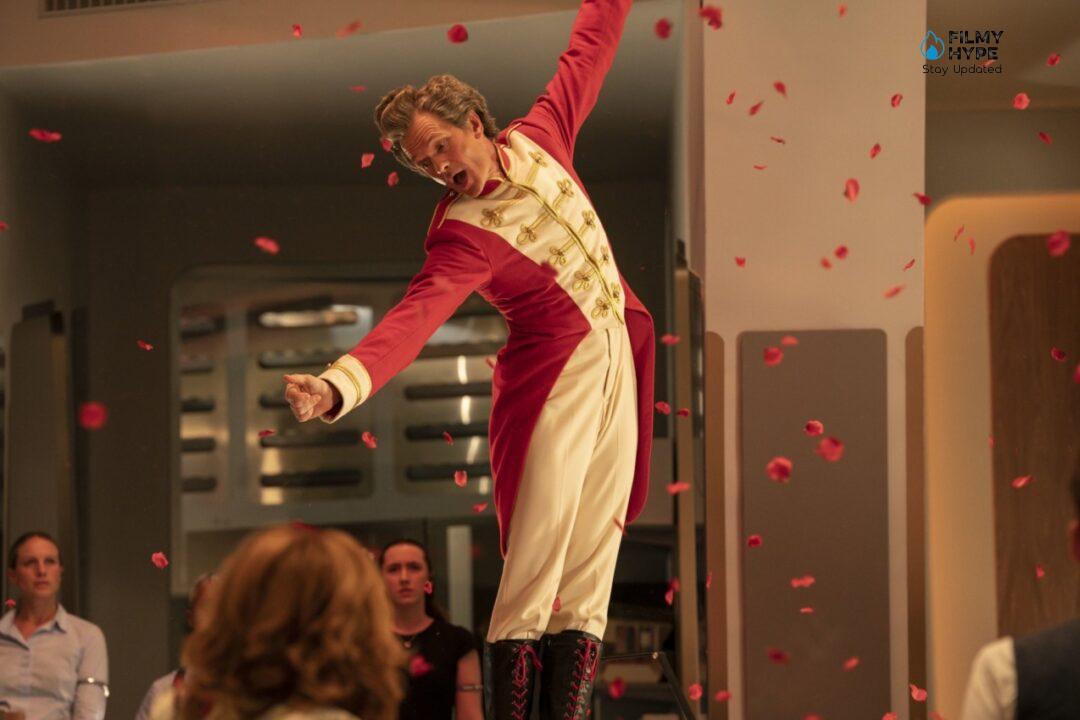
Already in 2017, at the end of Moffat’s management, the First Doctor was brought up to meditate on how the character and the world around him had changed over the decades (also underlining the not-so-latent sexism that was one of the ingredients of William Hartnell’s performance at the time). Back at the helm of the series, Davies did the same, indirectly, to think about how the Doctor had always remained true to himself, constantly running – or rather, on the run – since 1963, never wanting to stop, with every regeneration and change of friends as a sort of Linus blanket to mask the infinite traumas of a multitude of lives, with the Time War and the Flow as the definitive nonplus ultra of an existence devoted to joy as a mask to hide a profound pain (element dominant of the vintages of Christopher Eccleston, Tennant and Matt Smith). The end of Tennant-bis is the right time to stop for a moment, to rethink the concept of the series – according to Davies, actual science fiction will be put aside in the coming months – and of its protagonist, ready to reinvent himself more radically. But not too much, because even there is one constant remain, as Melanie reminds the Fourteenth Doctor: “It doesn’t matter who you are because each of you is fantastic”. Holy words, for six decades.
If in the previous specials we praised the extraordinary performances of Tennant and Tate, the scene, in this finale, is almost totally stolen by an extraordinary Neil Patrick Harris in the role of villain. The Toy Maker is a complex role, but one that seems to have been tailor-made for the American actor, capable of convincing the viewer from the first minutes on screen. In a riot of different accents and cryptic dialogues, Harris manages to instill fear, effectively making the threat almost real and tangible. And since the actor is also a magician and magician, cards and magic tricks were the natural use for such a character. Russel T. Davies himself stated that Harris delivers a performance that is not only broad in its scope but also authentically scary, making him perfect for the role of the Toymaker. The character of the Doctor has often found himself resolving the situation on a razor’s edge, but in this case, thanks to both the writing and Harris’ interpretation, it seemed from the first moment like something insurmountable and impossible to resolve and defeat.
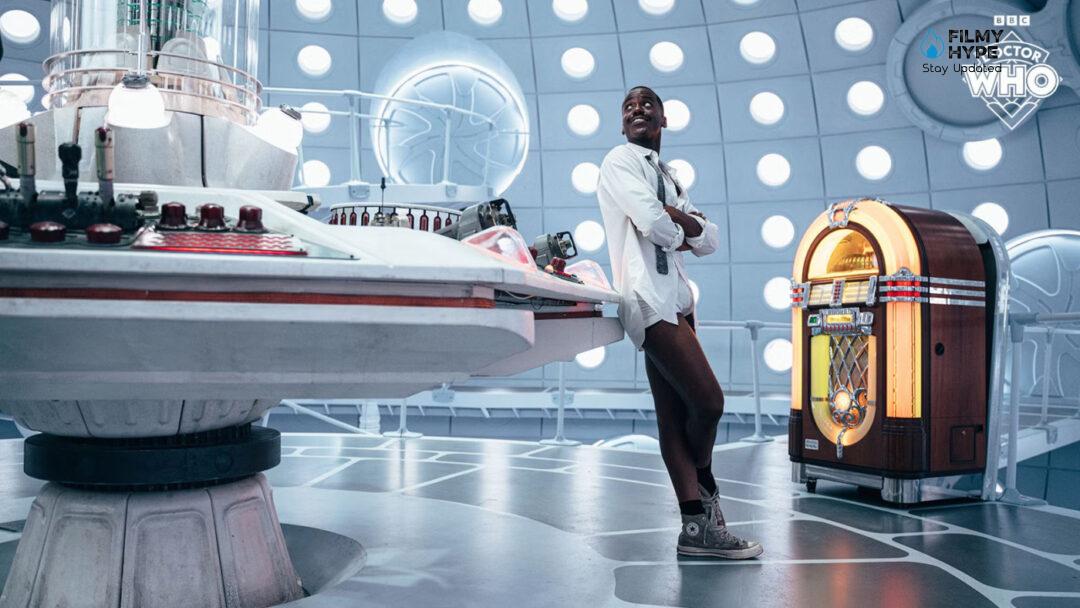
Thanks to the eccentricity of the character, then, it was possible to make the Toy Maker macabre, crazy, and enigmatic at the same time, with several changes of clothes, musical numbers, and more or less veiled references… to the past. We knew from the beginning that this would be a “short, but intense” moment in which to see David Tennant again in a role that almost seems to have been tailor-made for him, in something that, for some, seemed pure fan service and a way to raise ratings again after the collapse of the Chibnal era. I don’t agree, because seeing interpretations like those of Tennant, but also of Catherine Tate or Neil Patrick Harris should not be traced back only to fanservice, but to the need of the screenwriter and showrunner to tell a coherent, profound, and actors up to it. A new beginning is expected in the name of modernity and novelty, with Nguti Gatwa in the role of the Fifteenth, who we will see in action for the first time at Christmas, with the traditional Christmas special and which, according to official declarations, will start again as “Season 1”. A new beginning, therefore, a starting point for all those who, even just out of curiosity, want to throw themselves headlong into these adventures through time… and space.
Doctor Who: The Giggle Review: The Last Words
The Giggle is the perfect conclusion to “The Bridge” story arc, with a truly heart-pounding sort of finale that takes fans new and old through to the new beginning. Russell T. Davies closes the sixtieth-anniversary triptych with an episode that, like its content, is a regeneration for the series, not funereal, but celebratory. Overall, Doctor Who: The Giggle is a bold and ambitious special that may not please everyone, but it’s undeniably entertaining and thought-provoking. It’s a fitting tribute to the long-running series and a promising start for the next chapter.



